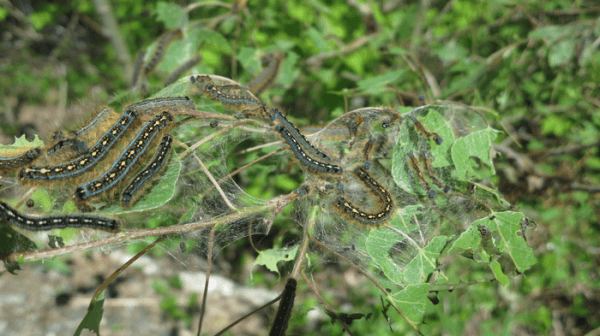A study led by the University of Cambridge has found that periodic mass outbreaks of leaf-munching caterpillars can improve the water quality of nearby lakes - but may also increase the lakes’ carbon dioxide emissions.
Outbreaks of caterpillars of invasive gypsy moths, Lymantria dispar dispar, and forest tent caterpillar moths, Malacasoma disstria occur at least every five years in temperate forests. The insects munch through so many leaves that the resulting decrease in leaf-fall and increase in insect excrement has been found to alter the cycling of nutrients, particularly carbon and nitrogen, between land and nearby lakes on a huge scale.
Nitrogen-rich insect excrement, called frass, can wash into lake water and act as fertiliser for microbes, which then release carbon dioxide into the atmosphere as they metabolise. The researchers suggest that in outbreak years the large quantities of frass will favour the growth of greenhouse gas-producing bacteria in lakes at the expense of algae that remove CO2 from the atmosphere.
“These insects are basically little machines that convert carbon-rich leaves into nitrogen-rich poo. The poo drops into lakes instead of the leaves, and this significantly changes the water chemistry - we think it will increase the extent to which lakes are sources of greenhouse gases,” said Professor Andrew Tanentzap in the University of Cambridge’s Department of Plant Sciences, senior author of the paper.
Read more at: University of Cambridge
Forest tent caterpillars on trees in Sudbury, Ontario. (Photo Credit: John Gunn)


